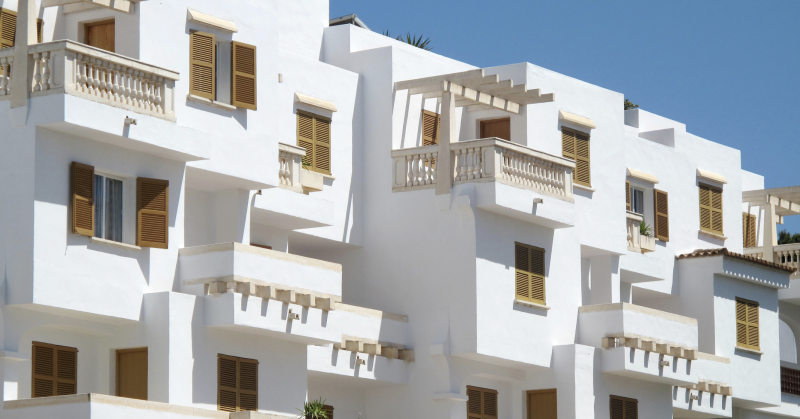Spain, with its sunny climate, rich cultural heritage, and diverse landscapes, remains an attractive destination for property buyers worldwide. Whether for investment, a holiday home, or permanent relocation, understanding the Spanish property market is crucial. Here’s an in-depth look at the key aspects of the market, helping you navigate it with confidence.
-
Market Dynamics
The Spanish property market has seen significant changes over the past two decades. After the boom in the early 2000s, the market suffered a dramatic downturn during the global financial crisis of 2008. However, in recent years, it has shown signs of recovery, with property prices steadily increasing and demand rising, particularly in popular areas like Madrid, Barcelona, and the Costa del Sol.
-
Popular Regions
- Costa del Sol: Known for its stunning beaches and luxury lifestyle, the Costa del Sol is a hotspot for expatriates and retirees. Towns like Marbella, Estepona, and Fuengirola offer a range of properties, from modern apartments to traditional villas.
- Barcelona: This vibrant city is famous for its unique architecture, cultural attractions, and bustling economy. It offers diverse property options, from historic flats in the Gothic Quarter to contemporary apartments in Eixample.
- Madrid: Spain’s capital is a dynamic hub of business and culture. The property market here is competitive, with high demand for centrally located apartments and family homes in the suburbs.
- Balearic Islands: Mallorca, Ibiza, and Menorca attract those seeking picturesque landscapes and a lively atmosphere, making them popular for both holiday homes and investments.
-
Types of Properties
The Spanish property market offers a variety of options to suit different needs and budgets:
- Apartments: Common in urban areas, ranging from compact studios to luxury penthouses.
- Villas: Found mainly in coastal and rural areas, offering privacy and space, often with gardens and swimming pools.
- Townhouses: Providing a balance between apartments and villas, these are typically located within towns or cities.
- Fincas: Rural properties or country houses, ideal for those seeking a tranquil lifestyle.
-
The Buying Process
Navigating the property buying process in Spain involves several steps:
- Reservation Agreement: Once you choose a property, you may sign a reservation agreement and pay a small deposit to secure it.
- Due Diligence: Conduct thorough checks on the property’s legal status, outstanding debts, and planning permissions. Hiring a local lawyer is highly recommended.
- Purchase Contract: If everything is in order, you’ll sign a purchase contract (Contrato de Compraventa) and pay a larger deposit, typically 10% of the property price.
- Final Deed: The final step is signing the public deed of sale (Escritura Pública) before a notary, after which the property is officially transferred to your name.
-
Costs and Taxes
When buying property in Spain, be aware of additional costs and taxes:
- Property Transfer Tax (ITP): Ranges from 6-10% of the property price for resale properties, depending on the region.
- VAT (IVA): New properties are subject to VAT, usually at 10%.
- Notary Fees: Approximately 0.5-1% of the property price.
- Legal Fees: Typically around 1-2% of the property price.
- Registration Fees: Costs for registering the property with the Land Registry.
-
Financing Your Purchase
Foreign buyers can obtain mortgages from Spanish banks, generally up to 70% of the property’s value. It’s essential to compare mortgage products and understand the terms and conditions. A good credit history and proof of income are vital for securing a mortgage in Spain.
-
Market Trends
Keeping up with market trends can aid in making informed decisions:
- Rising Demand: High demand in areas like the Costa del Sol, Madrid, and Barcelona continues to drive up property prices.
- Rental Market: The rental market is robust, especially in tourist areas, making it attractive for investors seeking rental income.
- Sustainable Development: There is a growing focus on sustainable and energy-efficient properties, reflecting global trends.
-
Legal Considerations
Understanding the legal framework is crucial for a smooth transaction:
- NIE Number: Foreign buyers need a Número de Identificación de Extranjero (NIE), a tax identification number for all financial transactions in Spain.
- Property Checks: Ensure there are no outstanding debts or legal issues associated with the property.
- Local Laws: Be aware of regional differences in property laws and taxes.
Conclusion
The Spanish property market offers diverse opportunities, but it requires careful research and planning. By understanding market dynamics, additional costs, and legal requirements, you can confidently navigate the process and find the perfect property to suit your needs. Whether for investment, a holiday home, or permanent relocation, Spain’s allure remains strong, offering a rich lifestyle in a beautiful setting.

